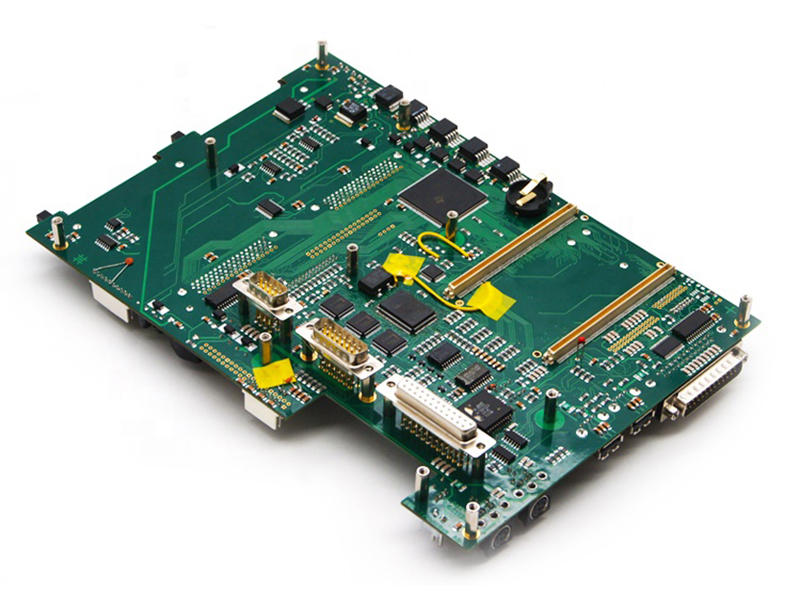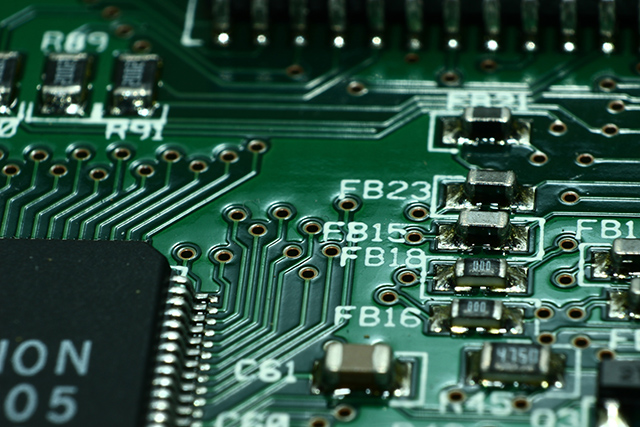 address:201, Factory 6, Longhui Industrial Park, Fuqiao 3rd District, Xinhe Community, Fuhai Street, Baoan District, Shenzhen china
address:201, Factory 6, Longhui Industrial Park, Fuqiao 3rd District, Xinhe Community, Fuhai Street, Baoan District, Shenzhen china
Detailed analysis of medical oximeter PCBA processing and assembly cases
Medical board PCB can be divided into:
Single-sided PCB board
On a basic medical PCB board, the parts are concentrated on one side and the wires are concentrated on the other side. Since the wires only appear on one side, this medical PCB board is called single-sided. Since single-sided boards have many strict constraints on the design of the circuit (since there is only one side, the wiring cannot cross and run around a separate path), only early circuits used this type of board.

Double-sided PCB board
This board has wiring on both sides, but to use wires on both sides, there must be a proper circuit connection between the two sides. Such "bridges" between circuits are called vias. Through-holes are small holes filled or covered with metal on a medical PCB board that can be connected to wires on both sides. Because the double-sided board has twice the area of the single-sided board, the double-sided board solves the trouble of wiring interleaving (which can be passed to the other side through vias). Better for more complex circuits than single panel.

Multilayer PCB
In order to increase the area that can be routed, multilayer boards use more single-sided or double-sided wiring boards. Use one double-sided as the inner layer and two single-sided as the outer layer or two double-sided as the inner layer and two single-sided as the outer layer of the printed circuit board. The positioning system and the insulating bonding material are alternated together, and the printed circuit board with the conductive pattern interconnected according to the design requirements becomes a four-layer or six-layer printed circuit board, also known as a multi-layer medical PCB board. The number of layers on a PCB does not imply that there are several separate routing layers. In special cases, empty layers are added to control the thickness of the board. Usually, the number of layers is an even number, including the two outer layers. Most motherboards have 4 to 8 layers of construction, but technically it can be a medical PCB board with nearly 100 layers. Most large computers use fairly multi-layered motherboards, but since these types of computers can already be replaced by clusters of many ordinary computers, multi-layer boards are gradually falling out of use. Because the layers in a medical PCB board are tightly integrated, it is often difficult to see the actual number, but it can still be seen if you look closely at the motherboard.

As people pay more attention to health, the demand for Oximeter PCBA is also gradually increasing. The oximeter is convenient and quick to use: you don't need to go to the hospital to collect blood, you don't have to endure the pain of flesh and blood, you just need to gently clip your fingertips for 3 seconds The clock can accurately see their physical health. In addition, it is safe and hassle-free: there is no possibility of cross-infection at all, and it also eliminates the cumbersome waiting in line for inspection, and you can check your physical condition anytime, anywhere.
The working principle of the oximeter: The fingertip (finger type) pulse oximeter uses infrared light technology to accurately detect the blood oxygen saturation and pulse of the human body through the brightness of the finger skin and musculoskeletal tissue. Different from blood collection, it has high safety, no need to worry about blood infection, no pain; high precision, and the accuracy fully complies with EU CE standards.
Applicable people: The oximeter is suitable for people of all ages, including children, adults, and the elderly. It is also necessary for normal people to monitor their physical conditions at any time; if you or your family members or friends have vascular diseases (including coronary heart disease, hypertension, hyperlipidemia, cerebral thrombosis...) or respiratory system (including asthma, bronchitis, old age, etc.) Chronic bronchitis, pulmonary heart disease...) and other diseases, then it is even more necessary to equip a fingertip pulse oximeter.

Introduction of finger clip (nail, fingertip) detector:
Provide customized solutions for the development of blood oxygen pulse rate detectors based on blood oxygen pulse rate modules;
Digital display of measurement results, intelligent reminder of abnormal results;
It can be connected to the development of medical Internet of Things, and the detection data can be uploaded to the cloud in real time;
Medical-grade blood oxygen pulse rate detection standard;
Blood oxygen finger clip machine
Numerical graphics diversified display:
One-click measurement
Small and lightweight
LED color screen
Pulse rate measurement
Low consumption and environmental protection
The blood oxygen finger clip module PCB supply board can provide customers with the corresponding PCB board to support the adjustment of the structure and the development of corresponding functions. Provide development and customization of different technical solutions and cost solutions. The customization of digital blood oxygen solution supports the development and customization of blood oxygen function modules in health all-in-one machines, medical ventilators, and home health testing terminals. Provide corresponding technical support for customers' corresponding medical device certification.

Oximeter PCBA performance parameters:
Model: Medical Device Board
Mechanical rigidity: rigid
Layers: Double Sided
Substrate: Copper
Insulation material: organic resin
Insulation thickness: conventional board
Flame retardant properties: VO board
Processing technology: calendered foi
-
No comment












 tel:+86-18825224069
tel:+86-18825224069 email:
email:





















